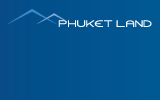Further Reading:
Offshore Corporate Ownership - Speculators

This month I will respond to two questions, the first posed by Mr. John (Anon) of Hong Kong, who writes:
'I am considering leasing some land in Phuket and building. Should I form a company in Hong Kong or BVI and then lease the land. If three (or more people) go in on this deal is an overseas company OK or do we need a Thai company".
Anyone (Thai or foreign, individual, group of individuals jointly or company) can lease land in Thailand and register the said land lease with the Land Office for a period up to 30 years. Private contracts agreeing extensions of the basic 30 year lease can also be made (but not registered) between the lessor and lessee. Well written these extensions can make the lease almost tantamount to freehold purchase. In a joint lease situation, it is possible for one or more of the lessors to sell or transfer their interest, without effecting the rights of the other joint lessors. There is therefore no need for an offshore company
There is also no local advantage (in terms of foreign ownership rights) in using a foreign corporate entity to acquire interest in land - indeed it is a slight hassle, because you will need translation into Thai of all the corporate documents, when you first lease the land and for any subsequent transactions by the company. The possible advantage of foreign corporate lease is that change of ownership interest (full or partial) could take place offshore by sale of shares in the foreign company. That might save a little on transfer fees and taxes. That said those shareholders do not have any direct rights to the land the company is leasing and will have to take adequate steps to ensure control of their interest in the offshore company.
A Thai company on the other hand can own land in it’s own name, bearing in mind however that no more than 49% of the shares can be held in a foreign name. With due discretion, it is not unusual for Thai nominees to hold shares for a foreign party. While there is nothing illegal in this per se it is strictly speaking illegal to have nominees holding shares for the express purpose of avoiding the laws restricting foreign ownership of property. Unless you have a real business need for a company in Thailand I would not recommend this approach.
Tim Rice of Patong writes "I have heard that many developers
contact wealthy friends to invest in their new projects. The friend
gamble 100,000 Baht down - and if it goes well pay the bank. If it does
not go well they just walk away and leave the bank holding the paper.
If this practice were indeed widespread it would obviously leave the
bank with a lot of bad paper. How could a private investor get a list
of projects in default"?
It is certainly correct that a lot of the initial development funding
for Thai development projects comes from sales to rich friends. It is
also true that a lot of people like to gamble, buying (an option to)
a property with a small down payment when a project is launched and
hope to resell it at a profit many further installments are made
In time of sudden market slow down (as we saw in the last few years) a lot of these gamblers either lost their stake (to the developer) or if they have long term faith in the property continue payments (usually up to about 30 or 40%) at which time the financing bank will release title (from the developers construction loans) and transfer ownership to the buyer against a mortgage.
Contrary to what you have heard, the banks are not unenlightened, and most mortgages must also backed up by personal guarantees, meaning that in the final resort the bank can ask the court to attach other property or income of a defaulting mortgagor. So in most instances a buyer cannot simply walk away from a bad investment.
Banks do not publicly list projects in distress, though privately may pass on recommendations regarding potential fire sales. So if you are in the market, a chat over a few beers with you local bank manager might prove interesting.
|
|
|


